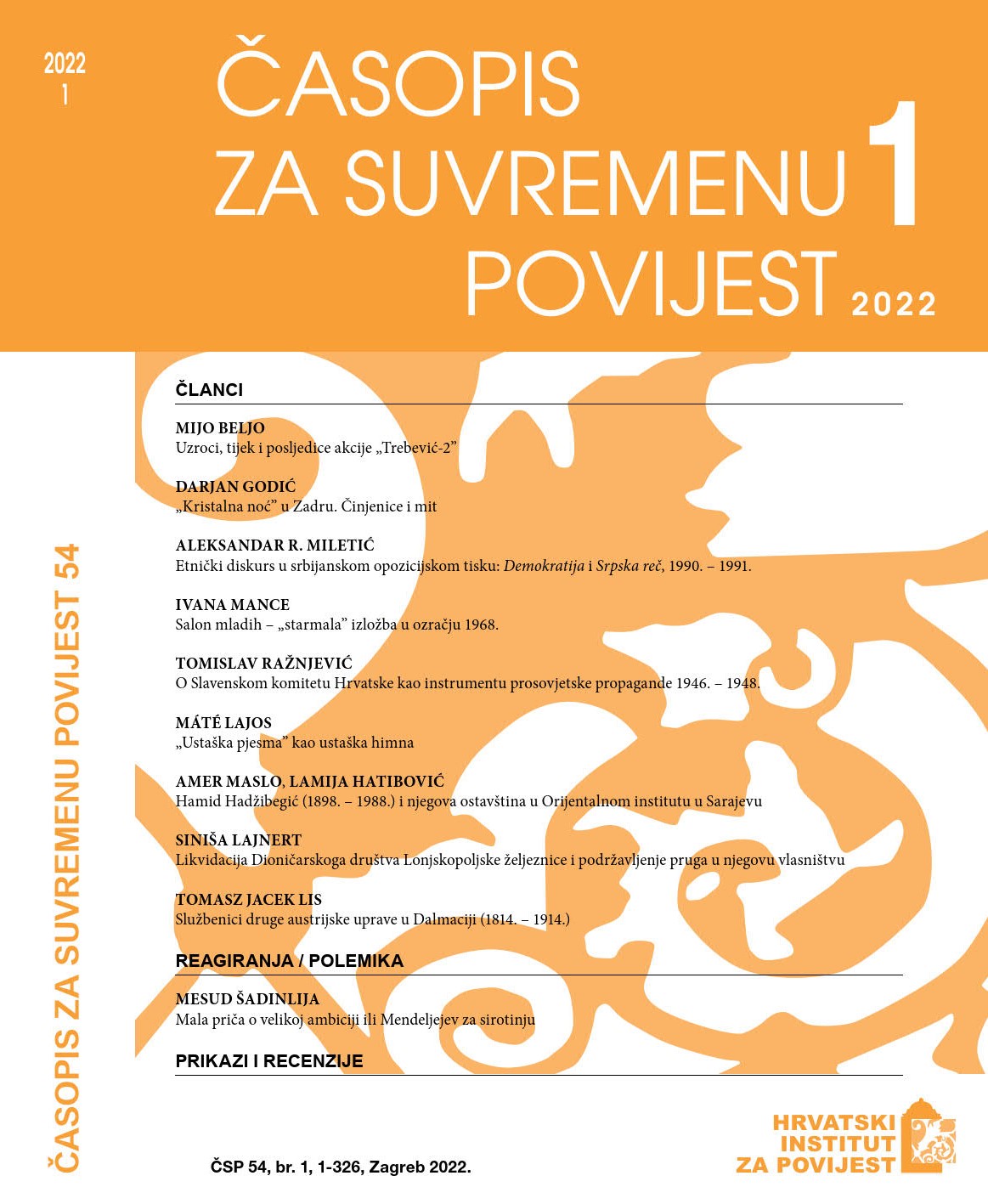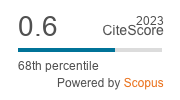An ‘Ustasha Song’ as the Ustasha Anthem
DOI:
https://doi.org/10.22586/csp.v54i1.19248Keywords:
Ustasha anthem; Ustasha Movement; Independent State of Croatia; Ante Pavelić; Ustasha ideologyAbstract
This article is based on the evolution of the Ustasha anthem. The text deals with the transformation of a folk song into an Ustasha battle song, which was later sung as the second official anthem in the Independent State of Croatia. The author demonstrates the theories about the genesis of the song in the first part of the text, and points out its presumable origin. For this purpose, statements from Croatian, Serbian, and Bosnian songbooks and anthologies from the 19th and the early 20th centuries are used. The myths surrounding the birth of the battle song are described in the second chapter, and they are compared to the events that influenced Ante Pavelić, the leader of the Ustasha: Croatian Revolutionary Organisation, to rewrite the text of a folk song. Although this song later became the Ustasha anthem, its importance could not be seen until the end of the 1930s because it appeared rarely in the newspapers and year-books of the Ustasha exiles. The third section is about the usage of the Ustasha anthem in the Independent State of Croatia. Although there was no law that defined the anthem of the Ustasha state, the role of the Ustasha anthem can be observed in the printed and visual media since it was usually presented along with the Croatian national anthem, Our Beautiful Homeland. The author points out the connection between the song and Ustasha ideology. The last part of the text illustrates the new forms of the song in the era of modern Croatia.
Downloads
Published
How to Cite
Issue
Section
License
Copyright (c) 2022 authors and journal

This work is licensed under a Creative Commons Attribution-NonCommercial 4.0 International License.
Copyright holders are the publisher Croatian Institute of History and the authors. Journal of Contemporary History is an Open Access journal. Users are allowed to read, download, copy, redistribute, print, search and link to material, and alter, transform, or build upon the material, or use them for any other lawful purpose as long as they attribute the source in an appropriate manner according to the Creative Commons licence CC BY-NC. The papers published in Journal of Contemporary History can be deposited and self-archived in the institutional and thematic repositories providing the link to the journal's web pages and HRČAK. Journal does not charge article processing charges (APC). The editors assume no responsibility for statements of fact or opinion made by contributors.




